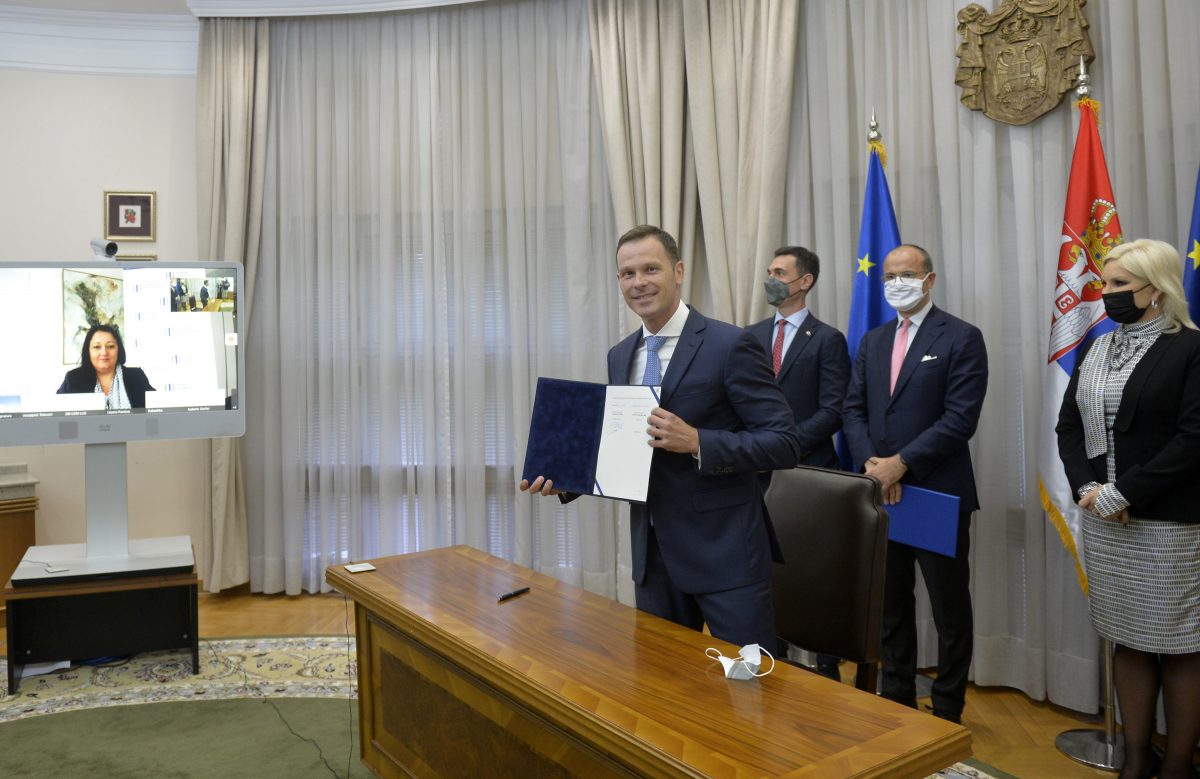- The EIB investment for this Project of Common Interest improves the security and diversification of the energy supply in Serbia and the Western Balkans, including regional integration with the EU energy market.
- The EIB loan complements a €49.5 million grant from the EU Instrument for Pre-accession Assistance.

The European Investment Bank (EIB) will finance the construction of the Serbian section of a 171 km natural gas interconnector between Serbia and Bulgaria. The €25 million loan from the EIB, the bank of the European Union, will enable the diversification of Serbia’s energy supply and strengthen energy networks in South East Europe. It will also support faster integration of the region into the EU energy market, improve competition and ultimately attract more investment. The EIB loan complements a €49.5 million EU grant (from the Instrument for Pre-accession Assistance – IPA II) for this project, which is on the fourth list of Projects of Common Interest.
“The European Investment Bank is supporting the energy transition in Serbia and around the world. As part of the EIB energy lending policy agreed in 2019, we committed to supporting a few select gas projects already under appraisal, before moving to renewables-only lending from the end of 2021. That is why the EIB is pleased to provide €25 million to back the construction of the Serbian side of this interconnector, a priority project for the European Union and the Central and South Eastern Europe Energy Connectivity (CESEC) initiative, contributing to a strong, prosperous and developing Serbia, a goal shared within Team Europe. With this investment we confirm the importance of supporting the energy transition in Serbia and the whole region,” said Lilyana Pavlova, the EIB Vice-President responsible for lending operations in Serbia.
Deputy Prime Minister of Serbia and Minister of Energy, Development and Environmental Protection Zorana Mihajlović stated: “Signing the loan agreement with the EIB, along with the previously approved EU grant, practically finalises the financial framework for the construction of the Serbia-Bulgaria gas interconnection. After the diversification of gas routes, Serbia’s goal is to also achieve the diversification of suppliers. The Niš-Dimitrovgrad gas pipeline, for which construction should start this year so that the pipeline can become operational by 2023, will enable Serbia to be supplied with natural gas from other suppliers – from LNG terminals in Greece, from the TAP and TANAP gas pipelines that are part of the Southern Gas Corridor, and possibly from the Eastern Mediterranean gas pipeline, with gas from the Leviathan field (Cyprus and Israel). The construction of the Niš-Dimitrovgrad gas pipeline will significantly increase the energy security of not only Serbia, but also the whole region.”
Serbian Minister of Finance Siniša Mali stated: “Investments in infrastructure are of great importance for Serbia, specifically in the energy sector because they contribute to the security of gas supply and the diversification of supply routes and suppliers. The Serbia-Bulgaria gas interconnector is very significant in this context and we therefore express our gratitude to the European Investment Bank for helping us to conclude the financial arrangements for this project today. These kinds of projects normally contribute to higher economic growth, which is particularly important amid the fallout of the coronavirus pandemic. That is why Serbia has provided substantial funds for the public investment budget, which has reached a record level of 7.2% of GDP.”
The Head of the EU Delegation to Serbia Ambassador Sem Fabrizi underlined: “This is a big step forward towards the realisation of a high priority project, which has several far reaching objectives: increasing diversification and security of energy supply in Serbia; strengthening regional cooperation to contribute to a well-balanced socio-economic development and pursuing energy transition and healthier environment. I welcome this project also as key part of the wider Serbia’s strategy to complete the ongoing liberalisation of the gas sector, an important commitment to further advancing Serbia in accession negotiations with the EU”.
To date, the EIB has invested over €672 million in the energy sector in the Western Balkans. In combination with EU funds, the EU bank provides strong and long-term financial support to the countries in the region and facilitates a shift to more energy efficient and diverse resources. This project helps decrease dependence on one supplier and creates a more competitive energy market. The project received JASPERS technical assistance during the preparation phase, which included the review of the EU grant application.